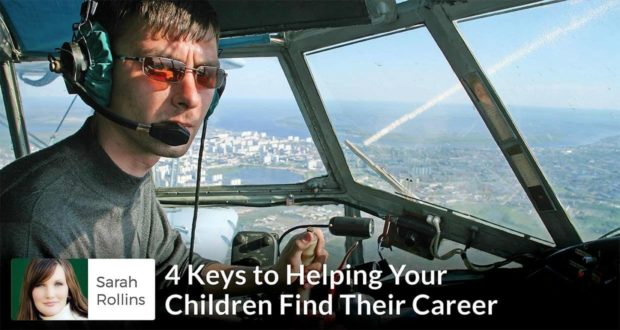Summary
Sarah Rollins, a homeschool mom of ten, has simple, practical advice for parents to help high school students discover their aptitude and career potential.At age 13, Simone Biles dreamed of Olympic victory.
She was dedicated to her goals and homeschooling was the way for her to achieve them. Alexandra Swan earned her Bachelors’ Degree by age 15 and her Master’s Degree from California State University just a year later. Her achievements are a result of accelerated home education.
And, of course, seven of Mona Lisa Harding’s homeschooled children went to college by age twelve.
Then there’s my son. Sure, Brendan finishes his work and stays out of trouble. He’s a well-enough educated senior. However, the shameful truth of it is, after being homeschooled all his life, he’s just normal. He will disgracefully graduate at the ripe age of eighteen.
He doesn’t have any fantastic ambitions. He only wants to do as little school as possible, to achieve the minimum requirements, and until about a week ago, he had no clue what to do with his life.
For eleven years, I’ve poured myself out for his education. I sat on the sofa, in the pain of limbo as he sounded out the same word a thousand times. My heart broke when he cried in confusion over math, and I put myself to sleep grading his papers.
My efforts supported his. I was the cheerleader of his success, and his triumphs have been my victories. So, the fact he reached his senior year with no goals was disappointing, even if it wasn’t a surprise.
Perhaps, while we defend the normalcy of our homeschooled children, secretly, we hope for the extraordinary. A smidgeon of genius. A pinch of musical talent. Maybe that’s just me. There is a particular way of keeping up with the Jones’ homeschool family.
But, it’s not inferior to raise and educate an average teen. Normal is okay.
Leanne Frost, Director of Education, Business, Technology & Transfer at Great Falls College MSU, explains my son is not alone. “Many seniors don’t know what to do with their life,” says Frost. “Dual-enrollment is a great way to get started.
It lets homeschooled students experience college classes and gives them confidence. They can pick several classes or just one.” Frost is working on obtaining her doctorate in adult and higher education.
Her dissertation is on dual-enrollment for which she interviewed over 40 high school students, some of whom are homeschooled. She offers excellent advice on how to help floundering students discover their potential.
Career Coach
Many colleges and independent websites offer aptitude testing or interest surveys to help guide students in the right direction. Career Coach is a free test that matches careers with selected answers. “Students at Montana State University (MSU) get started by taking the interest survey on Career Coach. It helps guide them to the careers they would be most interested in and the degree needed to pursue that career,” says Frost.
“Every student at MSU is assigned an academic advisor, specifically trained to help students discover their potential and guide them in educational and career choices. They meet with every student, at the very least, once each semester. They even meet with online students over the phone,” explained Frost.
“The most important thing to do is get started,” she said. “Every profession is going to require the core classes like math, writing, and communication. Dual-enrollment is a great way to accomplish those core studies with fewer fees and less tuition.”
Get a Job
“One way to learn what you want for your future is to discover what you don’t want to do,” explains Leyetta Way. “A part time job is a great way to expose students to the work environment.” Way is a Job Coach with Quality Life Concepts. She says interest surveys play a significant role in helping discover a student’s aptitude, but there’s a little more to it than that. “They might really like animals, but they don’t want to clean up after them. They might be very tidy and like organization, but would go crazy sitting at a desk, maybe they should work outdoors,” says Way. Experience will help guide students by helping them realize what they do, and do not enjoy. “Think about what you love and try to figure out how to make a career doing that.”
“Another way to gain that real-world experience,” adds Frost, “is to job shadow.” She says there are many ways to discover the environment you like. “Ask a few professionals if you can follow them around for a day.”
Also, joining clubs like STEM, 4H and volunteering are helpful in exposing students to their options.
Career Night
“Usually in the Spring Job Service holds a job fair,” explains Leyetta Way. A job fair can offer a visual smorgasbord of career options. If any company or profession stands out, students should begin their research.
Last year, Great Falls College MSU reached out to the homeschool community by offering a Homeschool Open House. During the event, the academic directors had informational booths which homeschool students could browse through.
Each booth had career information including average wage and cost of tuition. Several dual-enrolled homeschooled students gave presentations. “It was a good chance for parents and students to see what was available,” said Frost, who is helping to organize the homeschool event again this year.
Communication
It turns out Brendan had a dream. It’s not quite the same thing as an ambition or a goal. His dream was a desire which he thought was out of reach. After a little more communication, we learned Brendan wants to be a pilot.
However, he thought he would have to join the military to achieve his desire. So, whenever we asked what he wanted to do with his life, he gave an evasive answer.
As soon as I showed him his dream was possible, it transformed into a goal.

 Seton Magazine Catholic Homeschool Articles, Advice & Resources
Seton Magazine Catholic Homeschool Articles, Advice & Resources

